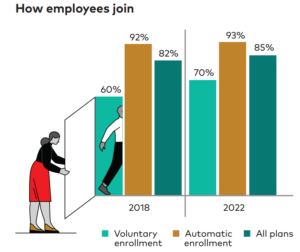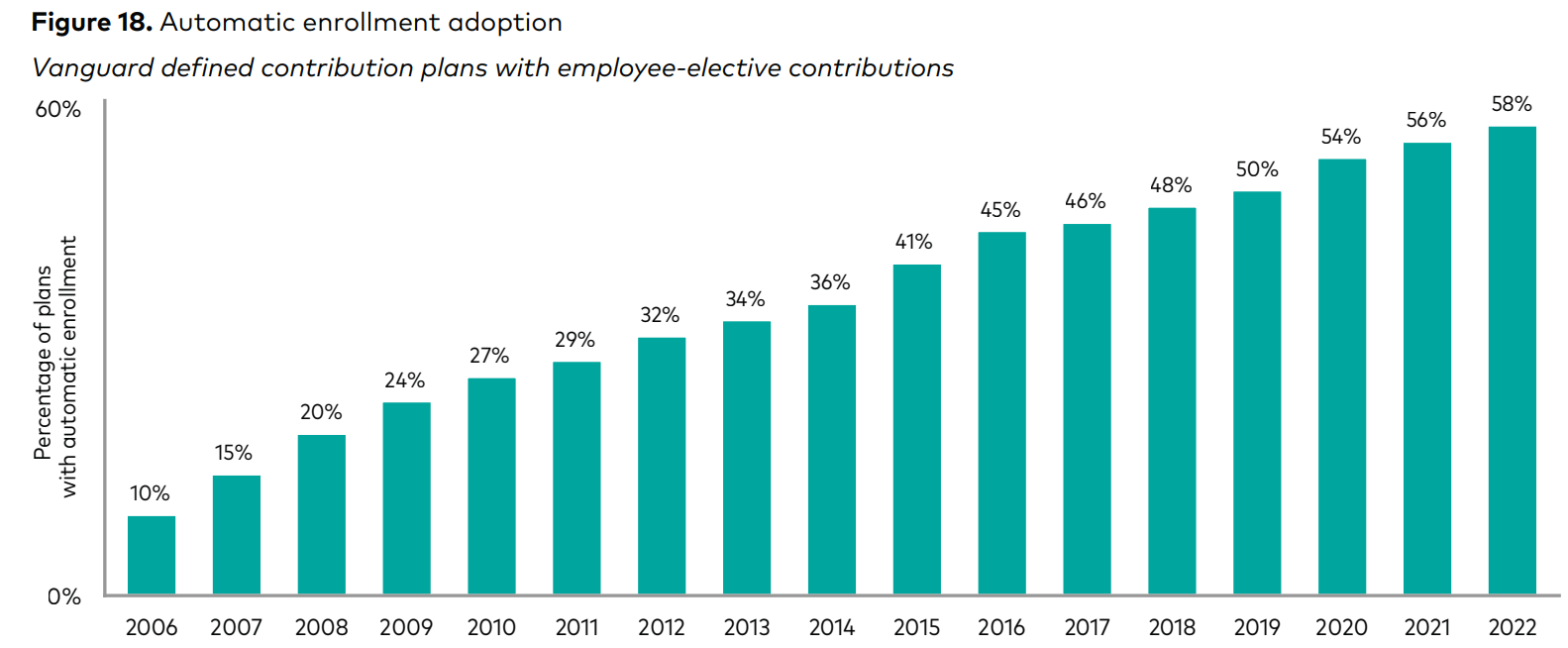
Vermont mandates retirement plan, 2 other states considering similar laws
By onLegal
Vermont is the latest state to enact a law mandating retirement benefits be offered to private-sector employees while Nevada and Pennsylvania have similar bills on the table.
At least 14 other states — Hawaii, California, Connecticut, Illinois, Massachusetts, Oregon, Washington, Colorado, Maine, Maryland, New Jersey, New Mexico, Virginia, and New York — have adopted retirement legislation in the past few years; most aimed at small businesses with five to 100 employees.
However, Nevada’s law would apply to all private-sector employers with at least five employees that have been in business for at least three years. Employees that have been employed by a business for 120 days would be enrolled in the Nevada Employee Savings Trust, which is an auto-Individual Retirement Account (IRA) program.
Employees would be automatically enrolled in the program or in a similar program offered by a trade association or chamber of commerce, with the option to opt out. If the bill is approved, the governor, majority leader of the Senate, and speaker of the Assembly will appoint the members of a Board of Trustees for the program. The board will determine the contribution percentage and how often employees that opt out are asked again if they want to enroll.
The VT Saves Program applies to all businesses in the state, whether for profit or not, that have at least 25 employees and don’t already offer a retirement savings plan or haven’t in the past two years. Employees who opt-in will be enrolled in a Roth IRA but the state treasurer can add an optional traditional IRA. The law directs the treasurer to phase in the implementation of the program based on employers’ number of workers beginning July 1, 2025. All employers are required to offer the program by July 1, 2026.
Employers aren’t allowed to contribute to their employees’ plans. Employee contributions will automatically be at 5% unless increased or decreased by the employee. The program is different from the Green Mountain Secure Retirement Plan, which was a voluntary Multiple Employer Plan (MEP) public retirement plan enacted in 2017 but never implemented.
Businesses in the collision repair industry that would like to provide a retirement plan for their employees can check out the Multiple Employer Plan (MEP) sponsored by the Society of Collision Repair Specialists (SCRS).
In 2019, SCRS began using the collective buying power of its membership to offer more affordable and attractive 401(k) options, and have effectively helped participating members save upwards of $15,000 per year while improving upon their retirement options for their team, SCRS said.
The vision of the plan is to help participating businesses and employees save expenses relevant to their 401(k) balances, reduce administrative responsibilities for companies, and provide fiduciary support, according to SCRS. Employers have access to customizable plan features; administrative support to help with transition, onboarding, and employee education; pre-negotiated declining fee schedule; annual tax filing prepared by SCRS, and one audit for the entire plan.
According to this year’s “How America Saves” by investment firm Vanguard, Americans “remained resilient” in 2022 to contribute to retirement savings plans despite economic ripples caused by the COVID-19 pandemic including inflation and higher interest rates.
The average account balance for Vanguard participants was $112,572 in 2022 and the median balance was $27,376 — a decrease of 20% compared to year-end 2021, driven primarily by the decrease in equity and bond markets over the year, according to the report.
“While there were a few areas that signaled a possible uptick in financial stress, overall, participants’ behavior in retirement plans remained in line with previous years, and most continue to maintain a long-term view,” Vanguard wrote. 
Vanguard’s findings are based on its 4.9 million participant accounts. Nearly half of Vanguard plans provided only a matching contribution in 2022, and 36% of plans provided both a matching and a non-matching employer contribution. Ten percent of plans provided only a
non-matching employer contribution.
At year-end 2022, 58% of Vanguard plans had adopted automatic enrollment, including 76% of plans with at least 1,000 participants. Two-thirds of automatic enrollment plans have implemented automatic annual deferral rate increases. Rates of automatic enrollment have steadily increased since the Pension Protection Act (PPA) of 2006 was enacted.
In Pennsylvania, lawmakers are also considering mandating an auto-IRA program. The Keystone Saves Program Fund would require all private-sector employees with at least five employees to offer a retirement plan.
Each participant would be able to select the rate of deduction from their gross wages for the program, subject to the annual contribution limit permitted by the Internal Revenue Code. Those who don’t select a deduction rate will default to 4% or the percentage chosen by the Treasury Department.
The House passed the bill on May 24. The legislative session resumes next week.
Images
Featured image credit: Towfiqu barbhuiya/Unsplash
Secondary images pulled from “How America Saves” by Vanguard

